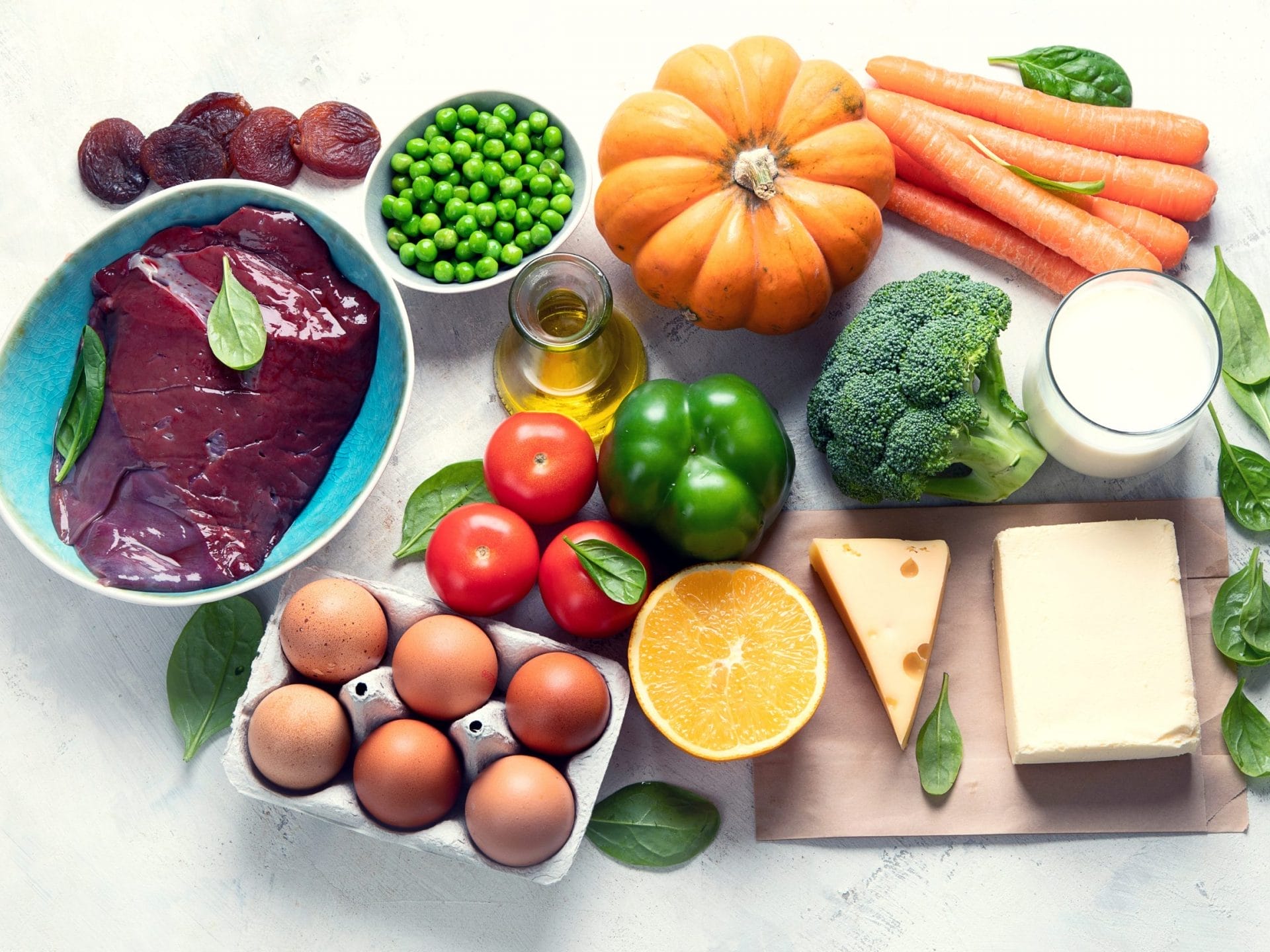The pursuit of optimal brain health is a priority for women of all ages. Ensuring a well-balanced diet with essential nutrients is crucial for supporting cognitive function. However, with the plethora of information that we have access to, it can be challenging to tease out which vitamins and minerals are most important to hone in on when it comes to maintaining optimal brain health.
In this 11-part series, we will explore everything from Vitamin A to Z (zinc!) to highlight the science-backed benefits of each nutrient, with a specific focus on its significance for women’s cognitive function. We will break down the emerging evidence and highlight which foods serve as rich sources of these nutrients so that you can find new recipes to incorporate them into a healthy, balanced diet.
Rather than a single entity, vitamin A refers to a group of fat-soluble compounds and includes both retinols and carotenoids. As a whole, vitamin A plays many critical roles within the body: from immune function to cellular communication. One of the best-known places where vitamin A acts in the body is in the eye. If you have ever heard the old stories about carrots leading to improved eyesight – vitamin A is the reason why! Carrots, and other orange, red or yellow produce are rich in vitamin A. In the retina of the eye, retinol combines with a protein called opsin to form rhodopsin, a pigment that is essential for the process of vision, particularly in low-light conditions. When light hits rhodopsin, it undergoes a chemical change that triggers nerve impulses, allowing us to see.
 Beyond this, the benefits of Vitamin A extend to other domains of health. There is considerable evidence to support the idea that carrots, and notably the anti-inflammatory components rich in carrots, peppers, and celery, have the potential to reduce age-related inflammation and damage in the brain.
Beyond this, the benefits of Vitamin A extend to other domains of health. There is considerable evidence to support the idea that carrots, and notably the anti-inflammatory components rich in carrots, peppers, and celery, have the potential to reduce age-related inflammation and damage in the brain.
Lutein, which is a particular carotenoid that falls under the vitamin A umbrella, is emerging as an influential nutrient on brain health and cognitive function. Unlike other carotenoids that are not able to be taken up by our brain cells, lutein readily crosses the brain’s protective barrier and provides nourishment for the cells there. In the brain, lutein serves as a potent antioxidant and anti-inflammatory agent. It is important to note that humans cannot make carotenoids spontaneously, and instead, rely purely on our dietary intake to be able to benefit from them. Rich sources of lutein include green leafy vegetables like spinach, kale, and chard.
In a large study amongst 13,000 women in the United States, it was found that women who reported the highest consumption of leafy green vegetables (ie. rich sources of lutein) experienced less cognitive decline when compared to women who ate fewer. This was a significant difference – as this subset of women had a ‘brain age’ that was 1-2 years younger than their counterparts.
A team from the US Department of Agriculture’s Human Nutrition Research Center on Aging, led by Dr. Elizabeth Johnson, built on these findings by studying the impact of lutein supplementation on the cognitive capacity of aging women and published their results in the Journal of Nutritional Neuroscience in 2008.
The team randomized 57 healthy women between 60-80 years old to receive either a placebo pill,  or a daily dietary supplement containing lutein and fish oil – both of which had been hypothesized to contribute to healthy brain aging. Over the four-month trial, participants underwent cognitive testing measuring their language abilities, memory, processing speed and mood. As one of the first studies designed to directly investigate the effects of lutein, the authors found that when used in combination with fish oils, lutein was associated with a significant improvement on several of the cognitive tests including memory, learning and language.
or a daily dietary supplement containing lutein and fish oil – both of which had been hypothesized to contribute to healthy brain aging. Over the four-month trial, participants underwent cognitive testing measuring their language abilities, memory, processing speed and mood. As one of the first studies designed to directly investigate the effects of lutein, the authors found that when used in combination with fish oils, lutein was associated with a significant improvement on several of the cognitive tests including memory, learning and language.
While the duration of the study was quite short, the authors note that lutein is known to build up in the brain tissue over time with increasing supplementation, potentially contributing to long term health benefits. Interestingly, fish oils are thought to improve the transport of lutein across the brain’s protective barriers and enhance uptake within the brain tissue. Together, these nutrients were demonstrated to have a synergistic effect on improving cognition amongst older females.
We look forward to exploring this finding further as the research on lutein and other Vitamin-A derived supplements continues to expand. Make sure to follow along for the remainder of our 11-part series on the top vitamins and nutrients for women’s brain health!
P.S. Check out these 9 foods that are high in Vitamin A




